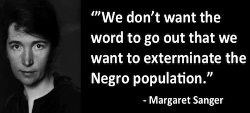
Contact: Catholic League for Religious and Civil Rights, 212-371-3191, pr@catholicleague.org
NEW YORK, Jan. 19, 2017 /Standard Newswire/ -- Bill Donohue comments on a short film, "100 Years," celebrating the centenary of Planned Parenthood:
Lena Dunham was a great choice to co-produce this Planned Parenthood propaganda film. She is not only a confessed child abuser, she recently regretted not having an abortion. Having Meryl Streep do some of the narrating was also wise. When she was a freshman at Yale, she took an acting class where she was asked to act out a death scene: she chose to perform an abortion on herself.
The founder of Planned Parenthood, Margaret Sanger, was both a racist and an anti-Catholic. Indeed, she was so extreme in her hatred of African Americans and Catholics that what she said was indistinguishable from the rants of the Imperial Wizard of the Ku Klux Klan.
Dunham knows Sanger was a racist, but glosses over it nonetheless; she does not even acknowledge her virulent anti-Catholicism.
Here is what Dunham says about her champion, Margaret Sanger:
"Margaret worked for civil rights leaders, immigrant women and black communities, but also aligned herself with eugenicists. Ugh. It doesn't seem to make sense. But way back in the early 20th century, eugenics was an immensely popular social movement, one with the kind of widespread legitimacy Margaret craved for her own birth control campaign." Dunham then praises Sanger, noting her "conflicting legacy."
Dunham's account is twice flawed. Sanger did not "align herself with eugenicists"—she played a leading role. The goal of Planned Parenthood, she said, was to "weed out" the "undesirables." By that she meant blacks. Her eugenicist journal, Birth Control Review, boasted that "Many of the colored citizens are fine specimens of humanity." This is exactly what slavemasters said at the auctions.
Not all blacks were a choice cut. "A good share of them, however, constitute a large percentage of Kalamazoo's human scrap pile." This was written in 1932, the year before Hitler took over Germany. In fact, Sanger published several articles by Nazi officials; they were dealing with the "human scrap pile" of Jews on their way to concentration camps.
Dunham is wrong to say that Sanger's eugenicist vision "doesn't seem to make sense." Indeed, from her perspective, it made a great deal of sense. To wit: If the goal is to filter the population, getting rid of "undesirables," then preventing what she called the "lesser breeds" from reproducing made a whole lot of sense.
Dunham is correct to note that "eugenics was an immensely popular social movement." Yes, it was very popular in Nazi Germany. What she failed to note is that the Catholic Church was almost alone on the world stage at the time opposing eugenics. On December 31, 1930, Pope Pius XI's encyclical, Casti Connubii, condemned the eugenics movement.
Sanger was also a classic anti-Catholic. When New York Governor Al Smith ran for president in 1928, Sanger's journal warned of "tyrannical intolerance and usurpation of power exercised by office-holders born and bred in the Roman Catholic faith." She even went so far as to say that no Catholic "has any moral right to hold a position of authority for the State." So much for the Constitution's prohibition of a religious test for public office.
Margaret Sanger wore her bigotry on her sleeve, but at least it wasn't dripping with blood. She opposed abortion; it was her successors who took up this cause.
Planned Parenthood was born in bigotry, and later bathed in blood, which explains why its leaders are Hollywood's heroes.




 Sign Up to Receive Press Releases:
Sign Up to Receive Press Releases: